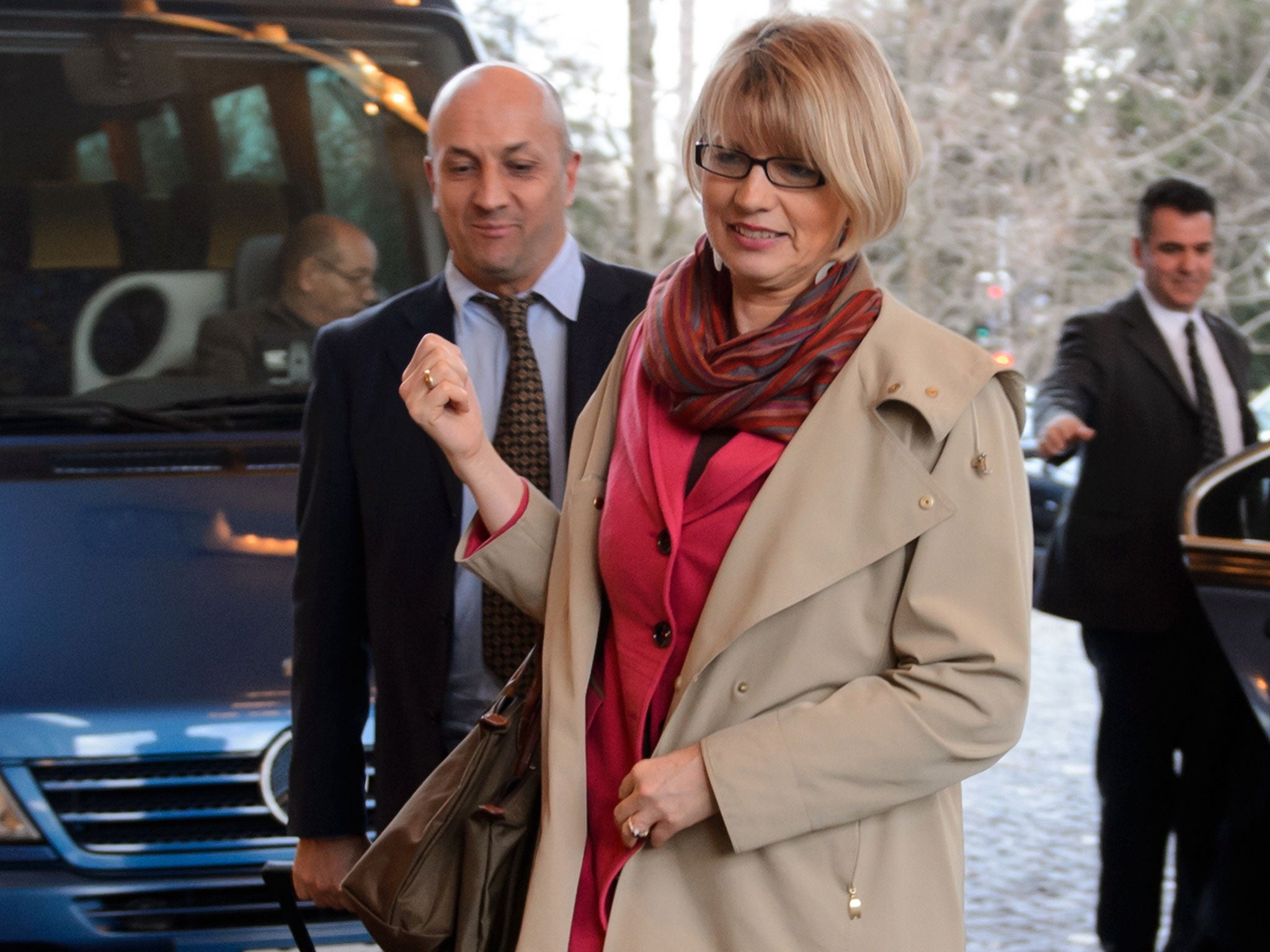'Very good' progress made in nuclear talks between EU and Iran
But US says discussions are not over yet

Iranian and European Union politicians made progress in resolving differences on how to implement a landmark nuclear deal during talks in Geneva on Friday.
However, the US said the discussions were not complete.
The EU is currently liaising with Iran on behalf of the US, Russia, China, France, Britain and Germany in diplomatic efforts related to Tehran’s atomic programme.
Iran’s Deputy Foreign Minister, Abbas Araqchi, met with a senior EU official in Geneva to discuss the logistics of Iran’s agreement to curb its most sensitive nuclear work in return for some sanctions being lifted.
Mr Abbas said after the meeting that “solutions for every difference” have been found, but more consultations were needed before an agreement could be announced.
He also hinted that an announcement may be made on Saturday.
A spokesman from the EU said the progress made on “all pertinent issues” was “very good,” but added that results of the talks still had to be validated by more senior officials.
US State Department spokeswoman Jen Psaki told a news briefing in Washington that the technical talks were making good progress but reports that a deal had been finalised were inaccurate.
Before the EU and US imposed sanctions are eased, the countries must agree how to verify that Iran is meeting its side of the deal.
Read more:
Iran has previously rejected western allegations that its nuclear programme is based around its military goals, and instead claims it needs nuclear power for energy generation and medical purposes.
Since the talks that began in late November last year, the nations have been discussing how to implement a deal and how much prior notice Iran needs to fulfil its obligation before sanctions are eased.
The talks have also run into problems over advanced centrifuge research, highlighting the huge challenges facing Iran and the six powers in negotiating the precise terms of the interim agreement.
The agreement is designed to last six months and the nations hope to use the time to negotiate a final, broad settlement over Iran's nuclear ambitions.
Additional reporting by Reuters
Subscribe to Independent Premium to bookmark this article
Want to bookmark your favourite articles and stories to read or reference later? Start your Independent Premium subscription today.

Join our commenting forum
Join thought-provoking conversations, follow other Independent readers and see their replies